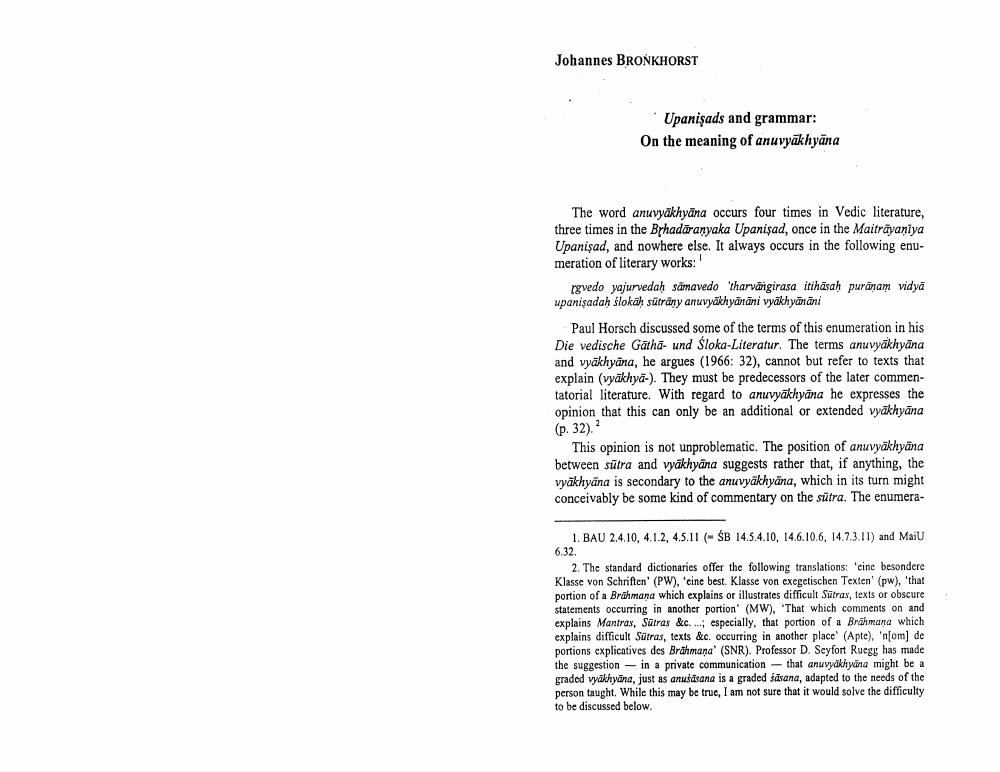Book Title: Upanisads And Grammar On Meaning Of Anuvyakhyana Author(s): Johannes Bronkhorst Publisher: Johannes Bronkhorst View full book textPage 1
________________ Johannes BRONKHORST Upanisads and grammar: On the meaning of anuvyākhyāna The word anuvyākhyāna occurs four times in Vedic literature, three times in the Brhadaranyaka Upanisad, once in the Maitrayaṇīya Upanisad, and nowhere else. It always occurs in the following enumeration of literary works: rgvedo yajurvedaḥ samavedo 'tharvängirasa itihasaḥ puranam vidya upanişadaḥ ślokaḥ sütrany anuvyäkhyānāni vyākhyānāni Paul Horsch discussed some of the terms of this enumeration in his Die vedische Gatha- und Śloka-Literatur. The terms anuvyakhyāna and vyäkhyana, he argues (1966: 32), cannot but refer to texts that explain (vyākhyā-). They must be predecessors of the later commentatorial literature. With regard to anuvyakhyāna he expresses the opinion that this can only be an additional or extended vyākhyāna (p. 32).2 This opinion is not unproblematic. The position of anuvyakhyāna between sūtra and vyakhyana suggests rather that, if anything, the vyäkhyana is secondary to the anuvyäkhyana, which in its turn might conceivably be some kind of commentary on the sutra. The enumera 1. BAU 2.4.10, 4.1.2, 4.5.11 ( SB 14.5.4.10, 14.6.10.6, 14.7.3.11) and MaiU 6.32. 2. The standard dictionaries offer the following translations: 'eine besondere Klasse von Schriften' (PW), 'eine best. Klasse von exegetischen Texten' (pw), 'that portion of a Brahmana which explains or illustrates difficult Sütras, texts or obscure statements occurring in another portion' (MW), 'That which comments on and explains Mantras, Sutras &c. ...; especially, that portion of a Brahmana which explains difficult Sutras, texts &c. occurring in another place' (Apte), 'n[om] de portions explicatives des Brahmana' (SNR). Professor D. Seyfort Ruegg has made the suggestion in a private communication that anuvyäkhyāna might be a graded vyäkkyäna, just as anusasana is a graded śäsana, adapted to the needs of the person taught. While this may be true, I am not sure that it would solve the difficulty to be discussed below.Page Navigation
1 2 3 4 5 6 7
